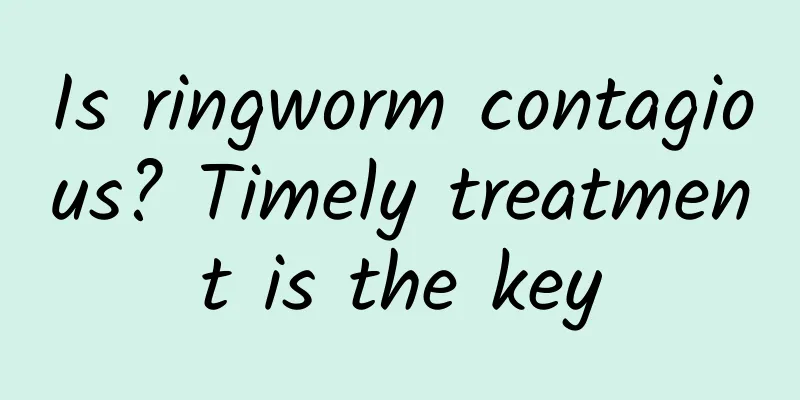What is bad breath related to?

|
The problem of bad breath may not seem serious, but it cannot be ignored. Because bad breath is mostly closely related to people’s eating and living habits. For example, some people have serious stomach diseases and do not pay attention to a healthy and reasonable diet. The symptoms that cause bad breath are relatively common, but there are many ways to treat bad breath. People often use breath fresheners, which only treat the symptoms and not the root cause. So what is bad breath related to? 1. Eating habits play an important role in the formation of bad breath. Foods such as onions, garlic, and animal fats can cause bad breath. 2. Tongue coating may also cause bad breath. You can use the tongue brushing method, which is to brush the back of your tongue with a toothbrush while brushing your teeth in the morning. Or use a biphasic mouthwash: alternately gargle with salt water and edible vegetable oil before bed. 3. Bad breath is particularly severe after getting up in the morning. This is because the saliva secretion is reduced during sleep, and the tongue and cheek muscles are basically in a resting state, which can easily lead to bad breath. 4. Liver and kidney yin deficiency is also a cause of bad breath. This situation is more common in elderly people because liver and kidney yin deficiency is more common in the elderly. Some people have a yin deficiency constitution. People with Yin deficiency have depleted Yin Qi in their bodies and are unable to restrain Yang Qi. When water fails to control fire, internal heat will be generated, hot steam will rise, and bad breath will be inevitable. This type of people also have symptoms of heat intolerance and irritability. 5. Having bad habits such as smoking and drinking. Smoking and drinking not only excite the human nervous system, but also activate anaerobic bacteria in the mouth. People often experience "regular bad breath" in social situations, where the odor is stronger and lasts longer than usual. Experts say that this kind of social bad breath is not entirely caused by food, but is sometimes related to a person’s life stress and psychological state. 6. People who are easily excited, angry or depressed often have bad breath. 7. Women are more likely to have bad breath during menstruation and pregnancy. 8. For patients with constipation, the feces contain skatole, ammonia, hydrogen sulfide, etc., which can reflux into the mouth and cause bad breath. 9. Anxiety can also cause bad breath. Most patients with bad breath due to anxiety are white-collar workers. They are generally people with strong abilities and good work performance. They have high demands on themselves, are in a state of mental tension for a long time, have relatively irregular lives, and have poor sleep quality. However, the situation can be alleviated through a period of psychological intervention and adjustment. 10. Digestive tract inflammation may cause bad breath. Such as esophagitis, chronic gastritis, chronic enteritis, ulcerative colitis, etc., the digestive tract energy is blocked, and bad breath is prone to occur due to retention and reflux of intestinal contents. What diseases does bad breath mean? Oral diseases: tooth decay, periodontitis, gingivitis, oral ulcers, etc. Bad breath and other odors caused by these reasons are the most common. Due to the lesions of oral tissues, the growth of bacteria, and the production of volatile sulfides through the decay and digestion of retained substances in the mouth, the inflamed areas will emit various abnormal odors. Nasopharyngeal diseases: rhinitis, sinusitis, etc. If you close your mouth and still smell something bad coming out of your nostrils, this is usually the case. Including those caused by diseases of the nasal cavity, throat, trachea and lungs. Tumors: oral cancer, lung cancer, liver cancer. Other systemic diseases: gastrointestinal diseases such as gastric ulcer, superficial gastritis, chronic colitis, etc.; metabolic diseases such as diabetes, hyperthyroidism, etc.; various types of hepatitis with abnormal liver function; kidney diseases such as renal insufficiency with impaired renal filtration and excretion function, acute nephritis, etc. |
<<: What to do if your baby has bad breath
>>: Does bad liver cause bad breath?
Recommend
Effects and points of action of Cyperus rotundus
Cyperus rotundus tastes spicy, slightly bitter, s...
Throat congestion, chest tightness, shortness of breath
Many people often experience throat congestion an...
How to judge whether breasts can still grow
Breasts are an important symbol of women. If the ...
Pros and cons of orthodontics
As people's living standards improve, they pa...
Precautions after laparoscopic surgery
With the continuous improvement of modernization,...
Can Tongcao enlarge breasts? Eating this way can make your breasts bigger
Everyone may have heard the saying "Breasts ...
What is the cause of the loose stool?
Loose and unformed stools are quite common in our...
What is glutamyl transaminase
I believe that everyone is still relatively unfam...
What to do about impotence, premature ejaculation and kidney deficiency? Dietary remedies are effective
Impotence and premature ejaculation are probably ...
Can the hair on the private parts be cut short?
For women, whether the pubic hair in the private ...
Can vinegar dissolve kidney stones?
Can eating vinegar dissolve kidney stones? There ...
Can I use moxibustion to treat ovulation bleeding?
Moxibustion, a traditional Chinese medicine treat...
Long hard mass felt in left lower abdomen
Many people have experienced the phenomenon of fe...
Can I take painkillers for lumbar disc herniation?
Suffering from lumbar disc herniation will bring ...
What happens when the mandibular joint is dislocated?
There are many reasons for mandibular dislocation...









